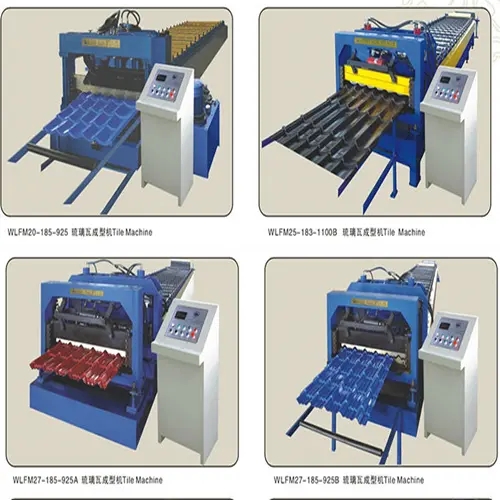
The Role of Guard Rail Forming Machines in Modern Infrastructure
In the ever-evolving landscape of modern infrastructure, safety remains a paramount concern. One of the critical components in achieving this safety is the installation of guard rails along highways and roads. Guard rails serve to prevent vehicles from veering off the road, reducing the likelihood of severe accidents. To facilitate the efficient production and installation of these vital safety features, guard rail forming machines have become indispensable in the construction and manufacturing industries.
Understanding Guard Rail Forming Machines
Guard rail forming machines are specialized pieces of equipment designed to create guard rails quickly and efficiently. These machines employ advanced technology to transform raw metal sheets into durable guard rail sections, complete with necessary curves, bends, and holes for anchoring. The capabilities of these machines have evolved significantly over the years, integrating automation and control systems that enhance precision and output.
Typically, the process begins with loading metal coils into the machine. The machine then uses a series of rollers and dies to shape the metal into the desired profile. Alongside forming the rail, these machines can also cut the material to length, providing a complete solution for guard rail manufacturing. By automating these processes, manufacturers can achieve high levels of consistency and quality, which are crucial for safety products like guard rails.
Importance of Precision and Durability
The effectiveness of guard rails in protecting lives relies heavily on their structural integrity and proper installation. Precise manufacturing is essential; even minor deviations in dimensions can lead to catastrophic failures in the event of an accident. Guard rail forming machines are designed to meet strict industry standards, ensuring that each piece is produced with utmost precision.
Durability is another critical factor. Guard rails are exposed to various environmental conditions, including extreme weather, road salt, and physical impacts. The choice of materials and the quality of the forming process directly influence the lifespan of the guard rails. Guard rail forming machines typically use high-strength steel, which not only provides resilience but also ensures compliance with safety regulations.

Advancements in Technology
The advancements in technology have significantly improved the capabilities of guard rail forming machines. Today's machines are often equipped with computer numerical control (CNC) systems, allowing for enhanced accuracy in shaping and cutting. Additionally, many machines now feature integrated monitoring systems that track production metrics in real-time, ensuring that any issues can be promptly addressed.
Furthermore, automation has reduced labor costs and minimized human errors in the manufacturing process. This shift not only boosts efficiency but also allows skilled workers to focus on more complex tasks, ultimately leading to higher productivity and better safety outcomes.
Economic Impact and Future Trends
As infrastructure development continues to grow worldwide, the demand for guard rail forming machines is expected to rise. This increase is fueled by government initiatives aimed at improving road safety and the expanding network of highways and expressways in developing countries. Investing in guard rail forming technology not only enhances manufacturing capabilities but also contributes to the overall safety of transportation systems.
Looking to the future, we can anticipate further innovations in guard rail systems. Manufacturers are exploring sustainable materials and eco-friendly processes to reduce the environmental impact of production. Additionally, advancements in smart materials that can absorb impact more effectively may revolutionize guard rail design and functionality.
Conclusion
Guard rail forming machines play a crucial role in ensuring road safety through the efficient production of guard rails. As technology continues to advance, these machines will become even more refined, delivering high-quality products that meet the rigorous demands of modern infrastructure. Ultimately, investing in guard rail manufacturing technology is an investment in safety, paving the way for a safer transportation environment for everyone.